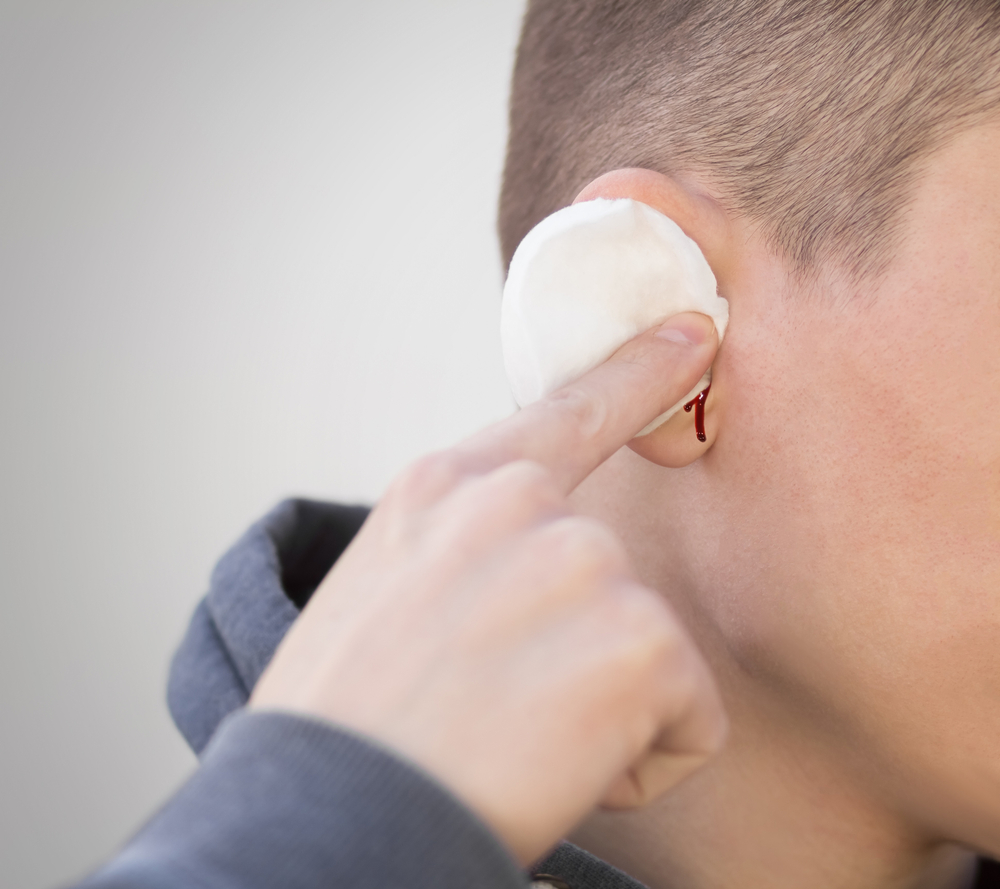You always try to put yourself in the shoes of others. In your 30’s, if you saw a much older man on a commuter train or bus, you might offer him your seat, knowing it was easier for you to stand. You might help your neighbor with small children carry her groceries to her door.
But sometimes it’s not so easy to understand what someone else may be experiencing. You simply don’t know what you don’t know. Such is the case when people who hear well try to understand hearing loss.
But art is attempting to change that in some inspiring ways.
Virtual reality
It’s hard for a child who has trouble hearing to express what he or she is going through. What if you were this child?
You feel lonely in a room full of hearing people. As everyone else is enjoying jokes, conversation, and games, you struggle to keep up, watching but unable to fully participate.
A playground is a very different place for a child who can’t hear well. You don’t hear a classmate yelling “watch out” as the soccer ball barrels toward your head. Ouch!!
In the classroom, your teacher asks you a question. She doesn’t realize that the sounds from the open window, mixed with the rustling of children and books make her sound all muffled and distant. She just keeps asking the question as her face grows stern.
Researchers are using a VR (virtual reality) machine to help recreate situations like these for parents. When a parent puts on the VR headset, they see and hear what a child struggling to hear experiences.
By helping a parent better understand what a child is experiencing, they hope to enhance the empathy parents feel.
The Listening Project
New York City-based pediatric audiologist, auditory verbal therapist and speech language pathologist, Dr. Jane Madell has been helping children hear for decades.
Just 20-30 years ago, when she diagnosed a child with severe hearing loss, she recounts how horrible it was. She had no good treatment options for the child other than to learn sign language. But today we have hearing aids and cochlear devices that can help a child with even the most severe hearing loss, hear better.
Dr. Madell decided to create a documentary with the help of the award-winning filmmaker Irene Taylor Brodsky. This film demonstrates what children with various levels of hearing loss experience.
She interviewed 15 of her former patients. She gathered their stories, allowing you to hear it from them.
But this isn’t a story of sadness. It’s one of overcoming obstacles and thriving in a society where most people can hear.
One of her former patients, Richard, is now in his 20’s. He received treatment for his hearing loss and is today a successful software engineer.
Dr. Madell reminds viewers throughout the documentary that stories like Richard’s likely would not be possible without modern hearing technology like hearing aids and cochlear implants.
Quay art’s invisible music
What does sound look like? What does the incomplete sound of one with hearing loss look like? What happens when you can’t hear something you know you could before?
Quay Arts is attempting to show us.
They’ve composed a score that combines music, colorful visuals and spoken word to express the experiences of a person who is dealing with slowly progressing hearing loss. This is the kind of hearing loss that many experience as they age.
That is, before choosing to do something about by getting hearing aids.
Hearing loss as an artistic expression
Art scientists have now proven that beautiful, blurry style of the Monet was due to cataracts. Cataracts allowed him to see a world only he could know. But he shared it with us through his paintings. Now those with hearing loss as well as hearing professionals and artists are giving those who hear a glimpse into the world of not hearing.
How would you feel if your world were very slowly going silent? Would you miss the sound of wind in the trees as you walk through the park? How about the gentle laugh of a loved one when you tell a joke? You’d probably think your joke wasn’t funny if you couldn’t hear that chuckle.
These are the experiences of many who have hearing loss but have yet to get it treated. If that’s you, don’t wait until it’s nearly silent. Get your hearing tested. Speak with a hearing specialist about how hearing aids can completely change your life.



